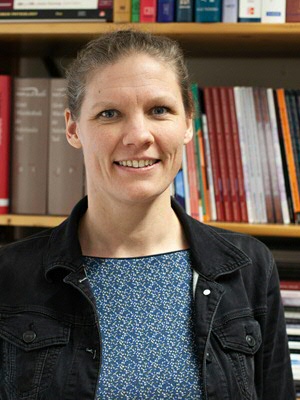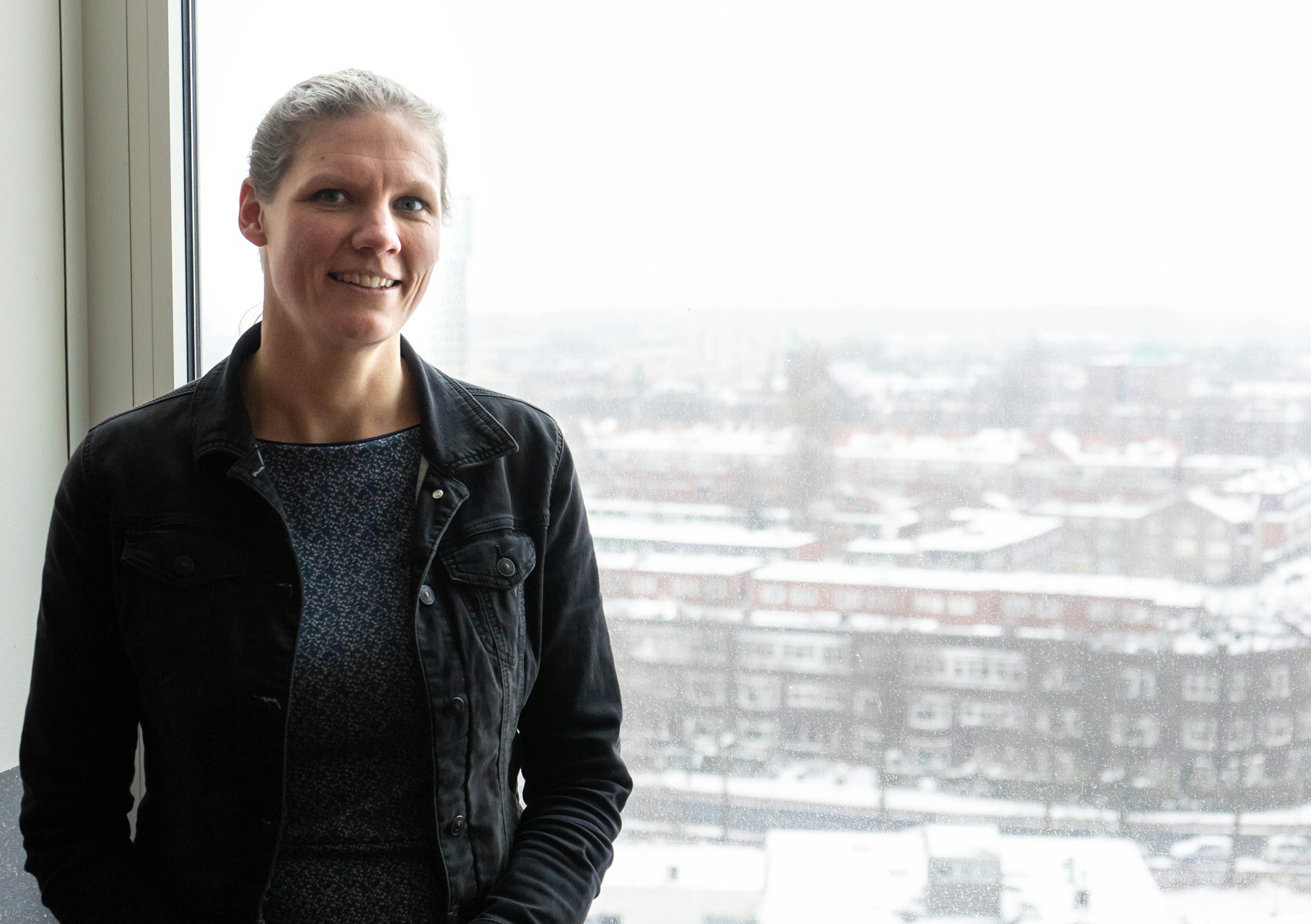A nip in the air
Through the cold, against the wind, I cycle through the centre of Groningen. I’ve forgotten my gloves and my hands quickly cool down. My autonomic nervous system receives the message that I am cold and takes action: the blood vessels in my skin constrict and my sweat glands are deactivated. My head and torso are warm and protected.
Text: Annemieke van der Kolk, Communication UG / Photos: Daniël Houben

Thermosensors
Not that I’m aware of any of this. Hiske van Duinen, a physiologist at the Faculty of Medicine at the University of Groningen, explains in precise detail what happens in the body of warm-blooded animals, including humans, when they are exposed to cold. ‘Thermosensors in your skin and brain measure the temperature of your blood and skin and pass this information on to the thermocentre’, she says. ‘This control centre compares the data with the target temperature of your body at that point. If your body’s temperature is too low, the thermocentre causes the blood vessels in your skin to constrict and you to sweat less.’ As much as possible of the valuable warmth that I lose through my skin and continuously breathe out is thus retained to keep my torso and head warm, the most essential parts of my body.
Cold stress
If the body is suddenly exposed to extreme cold, during a New Year’s dip for instance, the autonomic nervous system goes one step further. ‘That’s rather intense, it’s true’, Van Duinen laughs. ‘In that situation, you’re probably looking at a general stress response. Then your nervous system sends noradrenaline to your blood, which means that not only do your blood vessels constrict but your heart rate increases and you start to breath faster.’
Weight loss through the cold?
What if we have a cold winter after all, and it freezes for a number of weeks? ‘Then your thyroid kicks into action’, Van Duinen reassures me. ‘That determines the level of activity in your cells. When nutrients are burnt in your body, energy is released. Some of this energy is converted into heat. The more action in the cells, the more heat that is produced. If you are exposed to cold for a longer period of time, the thyroid will become more active to ensure that more heat is released in your body.’ And a welcome side-effect for some: you also burn more calories.
What to do in the cold
What should you do if you find yourself in a snowstorm, lose your coat on a night out or are caught out by the cold in any other way? ‘Try not to expose the skin to the air, so pull your hood or even your jumper over your head and keep moving. Walk at a gentle pace, downwind if possible. Make sure you don’t start to sweat. If you are too tired to keep moving, make yourself as small as possible and roll up into a ball. And then hope that someone will come along who can warm you up’, Van Duinen smiles.
Fascinated by physiology
It’s clear that Van Duinen is fascinated by the human body. ‘I studied Biology, and soon realized that I found the human body more interesting than plants. What particularly fascinates me is how everything in the body affects everything else.’ Van Duinen did her PhD in Medical Physiology and settled in Groningen after holding post-doc positions in Sydney and Stockholm. A position as Lecturer in Physiology came up, and she seized the opportunity with both hands. ‘Physiology is about the whole person, not just a particular part of them. I hope that my students, once they have specialized as doctors, will think back to the physiology classes where they learnt that everything in the body is interconnected.’
A warm feeling in the cold
Van Duinen herself prefers the heat. She knows full well what this does to the body, and as a beach volleyball player, she experiences it first-hand. In extreme heat, organs can even shut down, she says. Perhaps I should ask her more about that this summer, I think, as I cycle back. It’s still cold, but the knowledge that my body knows exactly what to do to keep warm gives me a warm feeling inside.

More news
-
15 September 2025
Successful visit to the UG by Rector of Institut Teknologi Bandung
